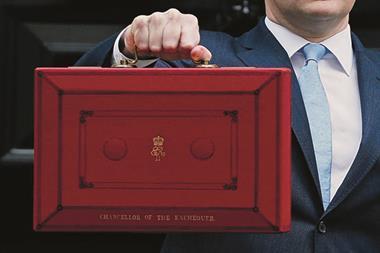The standard definition of an economist is a man who knows 50 ways to make love but has never met a woman.

On that basis, I have always been wary of long-range economic forecasts, not least because they are always wrong. So I make only one observation on the projections on productivity that the Office for Budget Responsibility issued with the recent Budget and were the subject of so much gloomy comment.
They showed that France has higher output-per-employee productivity than the UK, but it is a startlingly different outcome if the measure is output per available workforce.
Since the financial crash, the UK has produced over two million new jobs. Most are not highly paid and a number are zero-hours contracts, although the average number of hours worked is 35 per week, but this has converted all those people from tax consumers to taxpayers.
In France the massive on-cost of employment and redundancy means a business will mechanise anything it possibly can rather than employ people, which is why in France unemployment is twice as high as it is in the UK and youth unemployment stands at more than 25%. QED.
Housing was the main focus of the chancellor’s cautious exercise in spreading some cheer at minimal cost. The centrepiece was the first-time buyer stamp duty abolition – which goes to show it’s not the size of the giveaway that matters; it’s how it grabs the headlines.
It’s a shame Philip Hammond neglected to do anything about the top end of stamp duty, which would have yielded greater receipts and freed up job mobility where it matters, but we should be thankful for small mercies.
It’s not the size of the giveaway that matters; it’s how it grabs the headlines
I was frankly horrified to learn that the government is now spending £44bn supporting the housing market rather than biting the bullet and reforming the planning system, which the chancellor himself admitted is the only long-term way to improve housing supply.
I have railed beforehand against the housebuilders’ crack cocaine of Help to Buy, which simply raises prices. George Osborne’s attack on private buy-to-let landlords was a disgrace that Hammond failed to rectify. And what is the point of announcing grants to encourage small developers when one of the main reasons they cannot compete is that the planning system is so tortuous and expensive?
Unlocking land
I make an exception of the extra money to support the Housing Infrastructure Fund budget, because putting infrastructure in place to enable land to be unlocked for housing is one thing the government ought to be doing to help housing delivery.
Old Oak Common is a case in point. It has the potential to be the Canary Wharf of west London but only if its myriad railway lines are bridged and the new Elizabeth line and HS2 stations are decked. That is where the public sector should invest to deliver the 26,000 homes and 55,000 jobs the site has the potential to deliver.

And the final absurdity is surely asking Sir Oliver Letwin, no less, to study and report on why developers buy land so as to have a pipeline for the future and why they don’t put all of their stock on the market at once. You couldn’t make it up.
But finally, some good news. Along with others, BNP Paribas Real Estate, led by Emily Francis, has been campaigning for yonks to improve the business rates regime, so it was good to see little-noticed but significant changes included in the red book small print.
Three-year revaluations will give businesses greater certainty as to what they will have to pay. It is estimated that moving annual adjustments from RPI to CPI from 1 April will save £2.3bn over five years. And the surprise reform of the so-called ‘staircase tax’ regime to allow businesses with large space on multiple floors to have a single rate bill with some form of discount for size was particularly welcome.






























No comments yet